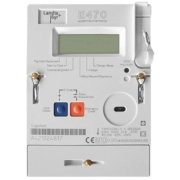Heat Network Regulation Explained
The much-anticipated heat networks regulation, outlined in the Government’s Energy Security Bill to be managed by Ofgem, is expected to come into force next year. Andy Wilkinson, Managing Director at WilSon Energy, explains the aims of this new regulation, what benefits it will deliver to consumers and he believes it is an essential move for the industry.
What are heat networks?
Heat networks supply heat and hot water from a central source to consumers via a network of pipes and are known as either a communal or a district heat network.
Communal heat networks are the most common form of heat network in the UK, providing heat and hot water to multiple premises and customers within a single building. District heat networks supply heat to more than one building, often covering a large area and supplying several buildings.
Currently, there are over 14,000 heat networks in the UK, providing heating and hot water to approximately 480,000 consumers[1].
What are the main benefits of heat networks?
Heat networks are one of the most cost-effective ways of decarbonising heating in built-up areas and will play a crucial part in helping the UK reach its net-zero targets.
More importantly, as well as supporting regeneration, they offer a fair and competitive price to consumers that will help reduce the cost of living.
Why is the regulation heat network regulation needed?
To date, the sector has remained unregulated, with no sector-specific protections for heat network consumers. In 2018, the Competition and Markets Authority (CMA) carried out a sector study finding that while, on average, heat networks deliver a comparable service to individual heating systems, there was a sufficient minority of consumers who receive significantly worse outcomes, such as high prices and frequent outages.
In addition, data from the Climate Change Committee estimated that around 18% of UK heat could come from heat networks by 2050 to support cost-effective delivery of carbon targets (up from around 2% currently).
As a result of these findings, Ofgem and the Department for Energy Security and Net Zero, have been shaping a new regulatory framework based on consumer protection requirements and supporting decarbonisation aims that heat network operators and suppliers must comply with.
How will this regulation benefit consumers?
These measures will regulate the sector and Ofgem will help to ensure consumers get a fair, competitive and proficient service.
The regulation includes powers to introduce an authorisation regime so organisations supplying heat through a heat network or operating a heat network will be regulated. This means that, ultimately, operators will be accountable for the way they work.
Ofgem will also have the powers to investigate and intervene on networks where prices for consumers seem disproportionate compared with heat networks with similar characteristics, or if prices are significantly higher than those consumers would expect to pay if they were served by an alternative and comparable heating system.
In summary, the intention is that these conditions and regulation will provide fairer pricing and transparent information for consumers, a higher quality service and minimum technical standards for heating provision.
How will the regulation support Climate Change?
The largest share of CO2 emissions from UK buildings comes from space heating and water heating, so driving energy efficiency in this area is an important part of the UK’s decarbonisation goals.
These new measures will support the decarbonisation of the sector and energy efficiency improvements by promoting technical standards and introducing carbon emissions limits on heat networks.
The growth and decarbonisation of the market will consequently make a vital contribution to government’s ambitious net zero ambition, and the role of heat networks is set to expand significantly.
What are the implications for non-compliance?
Some of the proposals under consideration include giving Ofgem powers to issue fines for poor levels of service. As regulator, Ofgem could also have the ability to order operators pay compensation in cases where there is a supply outage.
There are also proposed protections for vulnerable customers, such as elderly occupants or users with specific health conditions, by ensuring improved awareness among operators about individual users connected to the network.
Why is WilSon Energy in favour of Ofgem’s heat networks regulation?
As a leading supplier of fully integrated heating systems, and a heat network specialist, we are proud to set the industry standard by providing innovative and cost-effective solutions across the UK. We work with operators who are equally committed to delivering the most efficient heating solutions alongside the most robust data collection systems, that ensure we remain accountable for the service we deliver.
WilSon Energy has been providing billing and bureau services, together with, Pay As You Go (PAYG) Management services for heat networks and private multi-utility networks since 2009. We assist our clients by ensuring our services are delivered to meet the Heat Network (Metering & Billing) Regulations 2014 and in accordance with the Heat Trust.
We are compliant and make ourselves accountable by following best practice so our clients benefit from a fair and transparent service that benefits the wider community and environment.
To date, the market has been relatively unregulated, which has left many guidelines open to interpretation negatively impacting the customer. While we have always followed the framework set out by trusted associations such as Heat Trust, these new regulations will ensure a fair and level playing field for all.
What was the consultation period?
Feedback on the proposals being jointly conducted with Ofgem, were being sought until 27 October.
When will the regulations be introduced?
The new heat networks regulation is anticipated to come into force as early as early in 2024.
Following a period of being automatically authorised to operate, all heat networks will be required to notify to Ofgem to maintain their authorised status.
Government advice is that all heat networks prepare for regulation now by following existing good practice, such as that set out by the Heat Trust and the industry’s Code of Practice.
For more information on how we WilSon Energy can meet your energy needs, visit: https://wilsonenergy.co.uk/ or call us today on 01636 857 240.
[1] https://www.gov.uk/government/publications/energy-security-bill-factsheets/energy-security-bill-factsheet-heat-networks-regulation-and-zoning


 Credit
Credit



 WilSon Energy doubles up community support with latest sponsorship deal
WilSon Energy doubles up community support with latest sponsorship deal Energy Secretary urged to reconsider heat networks as integral to energy strategy
Energy Secretary urged to reconsider heat networks as integral to energy strategy Are you Heat Trust compliant?
Are you Heat Trust compliant? Wilson Energy awarded a contract to supply & commission Heat Interface Units in exclusive development in London
Wilson Energy awarded a contract to supply & commission Heat Interface Units in exclusive development in London